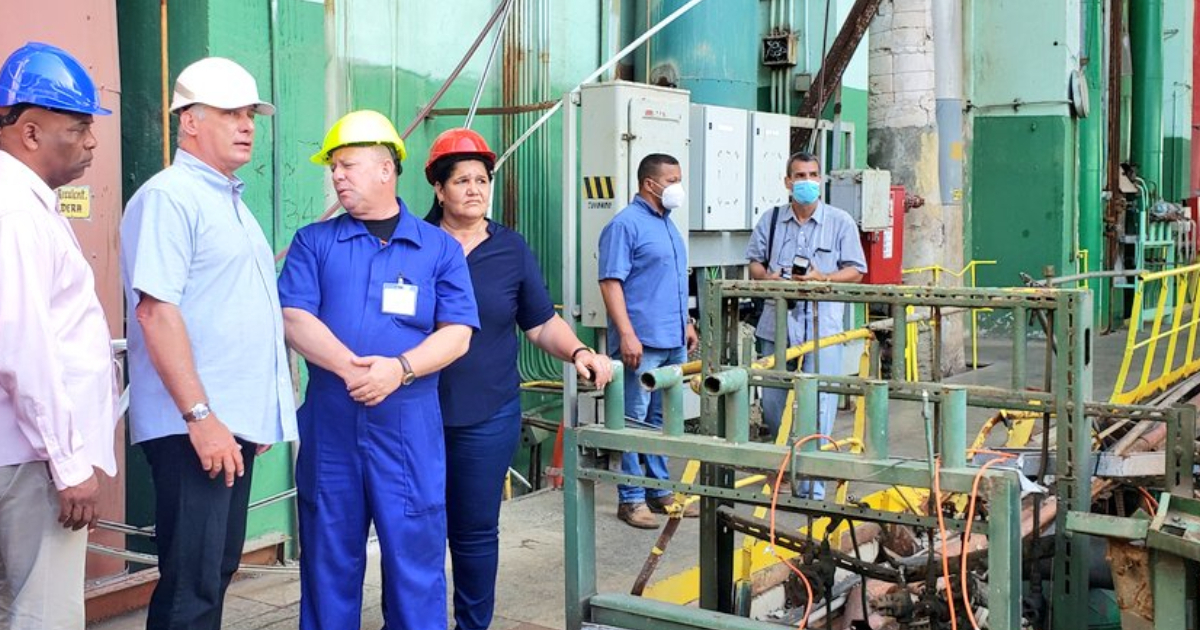
Related videos:
The Cuban Electric Union (UNE) wants to, but cannot. The state-run socialist company is currently caught between two communicative strategies or "narratives": one that promises a moderately hopeful future for its users, and another that prepares them for an even more "terrible and complex" scenario.
Caught in the whirlwind of its generation capacity deficit and battered by the torrent of opinions from Cubans enduring prolonged and frequent blackouts, the company led by Alfredo López Valdés is sinking slowly, unable to address the collapse of the national electricity system (SEN).
Burdened by outdated infrastructure, lack of investment, and heavy, sulfurous crude, as well as the prominence of state-owned companies in the post-communist framework established by the ruling Miguel Díaz-Canel, the SEN and UNE are sinking into the mire of their own statements, feigning transparency in a daily dance of megawatts that causes spasms among the Cuban populace.
"With the possibility of being lynched online, the truth is that tonight the nation may experience a deficit of around 1,200 MW. We'll see the figures from UNE tomorrow. But (and there’s always a 'but'), Felton is already preparing to resume generation in a couple of days, maybe three. It's also worth noting that by midweek, 500 MW will come online, so blackouts will re-emerge on time. However, to be honest, we will have," said official journalist José Miguel Solís on his social media this Monday.
For weeks, the UNE, regime leaders, and their state media have been claiming that the blackouts are due to planned maintenance (a strategy announced by Díaz-Canel in 2022 to restore electricity generation in 2023), which is set to conclude by the end of June to ensure a summer without blackouts during the hottest months.
But who can guarantee "zero blackouts?", questioned the First Secretary of the Communist Party of Cuba (PCC) recently. So now the strategy is to "reduce" the blackouts, making them shorter and more manageable, as stated by the Minister of Energy and Mines, Vicente de la O Levy, who recently claimed that, as they currently occur, blackouts are "an bearable inconvenience."
The appointed ruler who promised to stabilize the national electric grid in 2023 and that the "terrible" blackouts would end by June, before the summer, is now stating that, yes, but no; that the situation will improve, but not completely.
In these ambiguities, UNE is also celebrating the synchronization of Unit 6 in Nuevitas to the national grid after 77 days of maintenance, only to disconnect again in less than 24 hours, then be reconnected (as one of its executives stated, it's “normal” for these things to happen), and reappear on the list of malfunctioning units that the company publishes in its daily social media updates (the day before, no less). However, in a verbal update, Engineer Lázaro Guerra Hernández, the technical director of UNE, claimed that it was operational.
It is now time to entertain clients with Unit 1 of the Felton thermoelectric plant, which was celebrated yesterday by the Cuban Television News for entering the "final stage of scheduled maintenance" and is expected to be synchronized to the National Electric System this Wednesday, highlighting the "labor feat" of its workers.
Official journalist Bernardo Espinosa doesn't have enough time in his life to explain what is happening in the SEN and the decisions of the UNE. His reports leave many loose ends, which do not seek the truth of the matter (a mission impossible in a totalitarian regime without freedom of the press), but rather serve to propagate the dictates of the Palace, that air-conditioned enclave where "yes, but no" becomes the art of governing in what is referred to as "continuity."
Filed under: